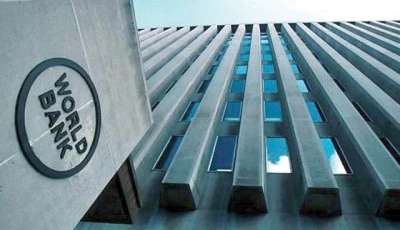


Monrovia – Vice President Jewel Howard Taylor has for the first time visited the Emergency Operations Center (EOC), which hosts the National Public Health Institute of Liberia (NPHIL).
She was met on arrival by the Director General, Tolbert Nyenswah, and Head of the Technical Committee of the One Health Coordination Platform (OHCP) in Liberia.
Vice President Taylor also met with senior staff of the Institute.
According to an NPHIL release, the Vice President’s visit was intended to obtain briefings on progress made in the implementation of Liberia’s One Health Platform and NPHIL key achievements as well as the institute’s 2018 strategic priorities.
The OHCP is a multi-sectoral and multi-disciplinary approach working at the national, sub-national and optimal global networking to effectively and efficiently address public health preparedness and response including zoonosis.
Based in the office of the Vice President, the OHCP seeks to demonstrate national commitment and stewardship to mitigate and significantly reduce attributable loss of lives and deaths from emerging and re-emerging public health events of international concern and strengthen local inter-ministerial networking through collaborations.
Since the establishment and launch of OHCP in Liberia in June 2017, the Platform has developed implementation manual, Contingency emergency operation manual, annual work plan, procurement plan and infrastructure. Liberia is the first country in West Africa to develop its Governance Manual and an annual work plan for the implementation of the OCHP.
The Governance Manual provides an overview of the administrative and technical organization of the OHCP.
The manual provides guidance on the roles and responsibilities of the multi-sectoral stakeholders across human, animal and environment interface.
It can be recalled that the National Public Health Institute of Liberia was created to coordinate and strengthen disease detection, outbreak investigation, develop and build public health workforce and other public health functions.
The Institute also prevents and controls public health threats while creating a center of excellence for better health outcomes.
Essentially, the last 12 months have been characterized by unprecedented achievements notably – the ongoing construction of NPHIL new headquarters, Regional Laboratories, increased public health diagnostic capacity from 8 to 11; and training of 250 field epidemiologists in 92 districts across Liberia’s 15 counties.
Meanwhile, the NPHIL has also effectively embarked on water quality and food testing initiatives aimed at reducing food and water borne related diseases.
There is an ongoing construction of the national water quality testing laboratory, as well as, upgrading of human capacity in environmental and occupational health to improve environmental and occupational hazard detection and reduction.




The ball is in Imran Khan's Court
comments
Comments are moderated and generally will be posted if they are on-topic and not abusive.
For more information, please see our Comments FAQ